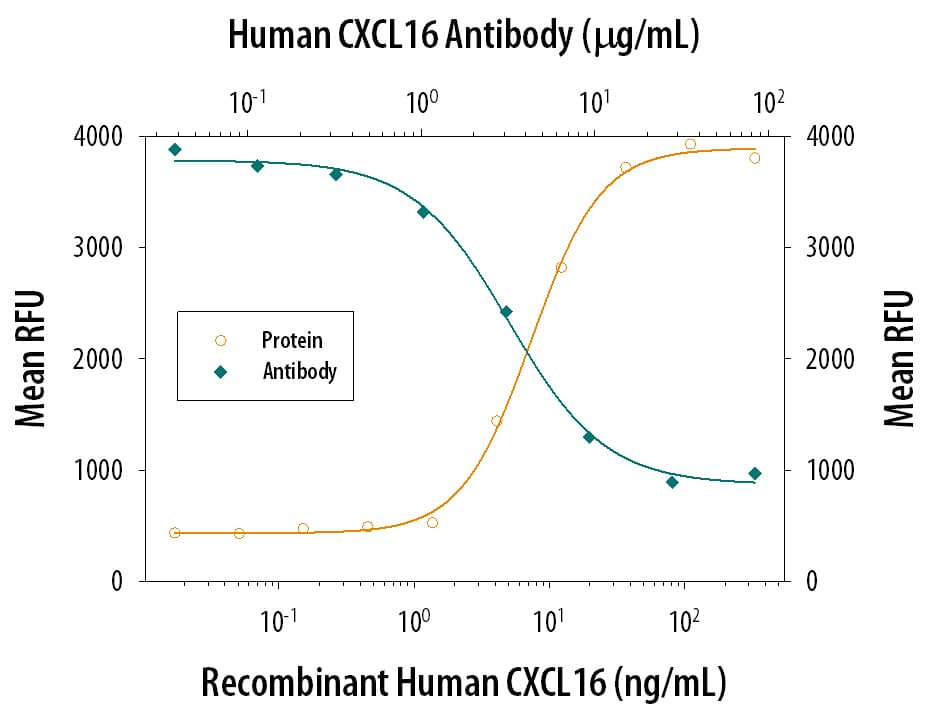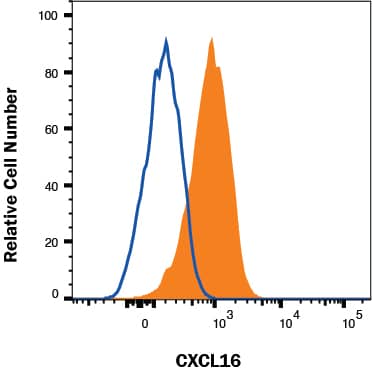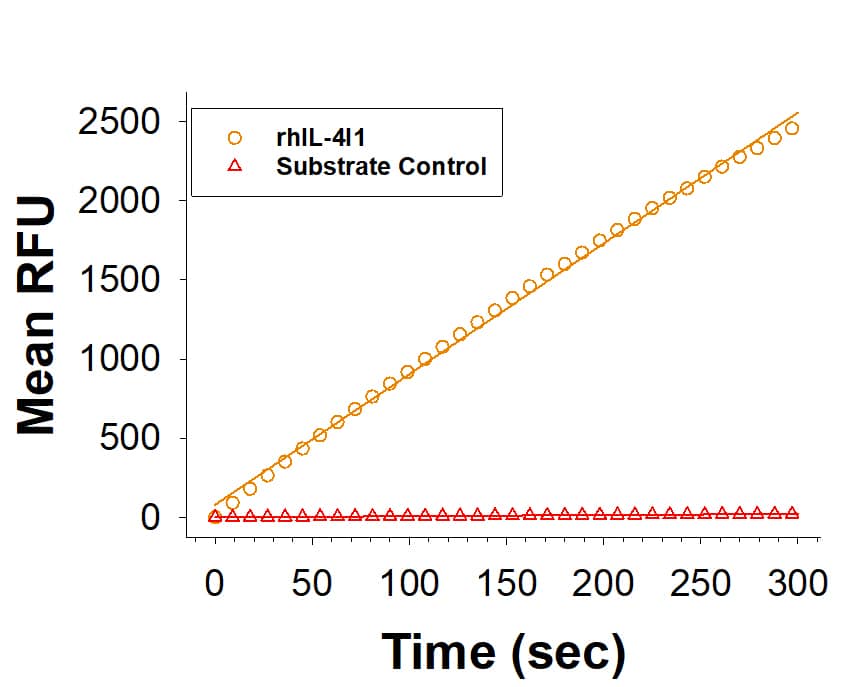Human CXCL16 Antibody Summary
Asn30-Pro118
Accession # Q9H2A7.4
Customers also Viewed
Applications
Please Note: Optimal dilutions should be determined by each laboratory for each application. General Protocols are available in the Technical Information section on our website.
Scientific Data
 View Larger
View Larger
Chemotaxis Induced by CXCL16 and Neutralization by Human CXCL16 Antibody. Recombinant Human CXCL16 Chemokine Domain (Catalog # 976-CX) chemoattracts the BaF3 mouse pro‑B cell line transfected with mouse CXCR6 in a dose-dependent manner (orange line). The amount of cells that migrated through to the lower chemotaxis chamber was measured by Resazurin (Catalog # AR002). Chemotaxis elicited by Recombinant Human CXCL16 Chemokine Domain (20 ng/mL) is neutralized (green line) by increasing concentrations of Human CXCL16 Monoclonal Antibody (Catalog # MAB976). The ND50 is typically 2-8 µg/mL.
Preparation and Storage
- 12 months from date of receipt, -20 to -70 °C as supplied.
- 1 month, 2 to 8 °C under sterile conditions after reconstitution.
- 6 months, -20 to -70 °C under sterile conditions after reconstitution.
Background: CXCL16
CXCL16 is a transmembrane protein with an extracellular domain consisting of a chemokine domain suspended on a mucin-like stalk. It functions as a ligand for the HIV co‑receptor, CXCR6 (Bonzo).
Product Datasheets
Citation for Human CXCL16 Antibody
R&D Systems personnel manually curate a database that contains references using R&D Systems products. The data collected includes not only links to publications in PubMed, but also provides information about sample types, species, and experimental conditions.
1 Citation: Showing 1 - 1
-
Mesenchymal stem cell-derived CXCL16 promotes progression of gastric cancer cells by STAT3-mediated expression of Ror1
Authors: T Ikeda, M Nishita, K Hoshi, T Honda, Y Kakeji, Y Minami
Cancer Sci., 2020-02-25;111(4):1254-1265.
Species: Mouse
Sample Types:
Applications: Neutralization
FAQs
No product specific FAQs exist for this product, however you may
View all Antibody FAQsReviews for Human CXCL16 Antibody
There are currently no reviews for this product. Be the first to review Human CXCL16 Antibody and earn rewards!
Have you used Human CXCL16 Antibody?
Submit a review and receive an Amazon gift card.
$25/€18/£15/$25CAN/¥75 Yuan/¥2500 Yen for a review with an image
$10/€7/£6/$10 CAD/¥70 Yuan/¥1110 Yen for a review without an image















